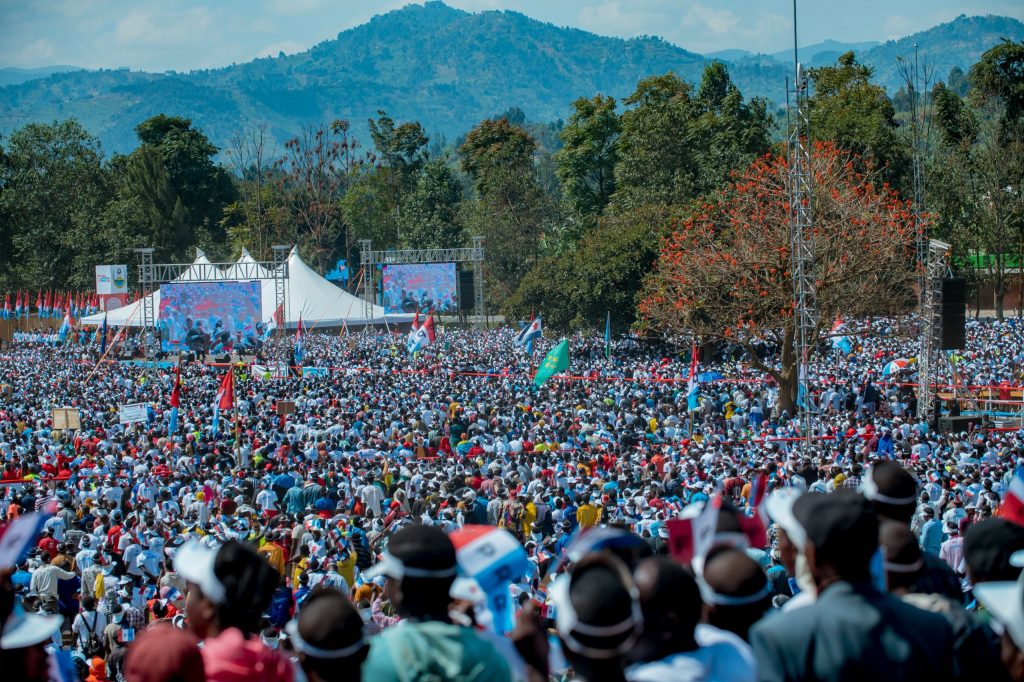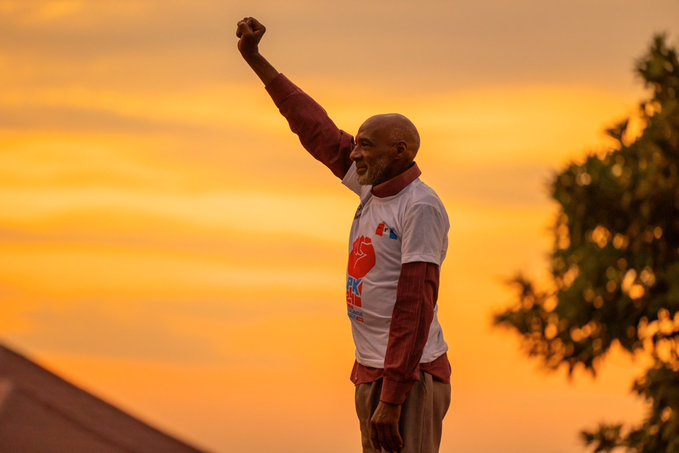As Rwanda gears up for its presidential election, the nation is witnessing a vibrant political scene marked by stability and predictability.
President Paul Kagame, the incumbent and leader of the RPF-Inkotanyi, is widely expected to secure another decisive victory. His opponents, Philippe Mpayimana and Dr. Frank Habineza, though actively campaigning, highlight the expected election outcomes with their contrasting approaches and support levels.
President Kagame’s campaign is a testament to his commanding presence and the deep-seated support he enjoys across Rwanda.
His rallies, featuring brief speeches and vibrant festivities, reflect the confidence the RPF-Inkotanyi has in its leader.
With speeches lasting no more than 30 minutes, the heavy lifting is left to mobilizers, entertainers, and testimonials from citizens.
These well-organized events are more than just political gatherings; they are community celebrations, showcasing meticulous planning and substantial resources, illustrating the party’s dedication to engaging its supporters meaningfully.


Dr. Frank Habineza of the Democratic Green Party of Rwanda might see a marginal increase in his vote share compared to the 2017 elections, signaling a growing, albeit limited, appetite for alternative political voices.
Philippe Mpayimana, running as an independent, is expected to garner fewer votes than in previous elections, pointing to a consolidation of support around the more prominent candidates.

One of the most heartening aspects of this election cycle is the improvement in the electoral process.
For the first time, opposition candidates have been able to conduct their rallies without interference from state security organs or local authorities.
This development marks a significant step towards a more open and democratic electoral environment, reflecting positively on the RPF-led government and its commitment to fairer elections.
The RPF’s coalition with other parties, such as the Social Democratic Party, the Liberal Party, and PS Imberakuri, not only amplifies its reach but also showcases the broad-based support that underpins Kagame’s leadership.
This coalition-building strategy enhances the perception of inclusivity and broad-based governance, reducing the potential for political fragmentation.

Observers often marvel at Rwanda’s political stability, especially in a region where electoral processes can be volatile and unpredictable.
Several nuanced factors contribute to this phenomenon. The RPF-led government has implemented effective governance policies that have spurred significant socio-economic development, bolstering public confidence and loyalty.
Strategic communication efforts by the RPF demonstrate a high level of political acumen, mobilizing and engaging supporters through well-organized and resource-intensive campaigns.
The controlled political environment ensures minimal disruption and a predictable electoral outcome, even as improvements in electoral fairness are evident.
This controlled environment, however, does raise questions about the depth of political pluralism and the robustness of opposition voices. https://x.com/rpfinkotanyi/status/1804580567952044108?t=KepBXICDBmHrJo8VRyYQCQ&s=19
Cultural cohesion and unity, with post-genocide Rwanda focusing heavily on national unity and reconciliation, create a politically cohesive environment that supports stability.
This cultural unity is a double-edged sword, fostering national harmony while also potentially stifling dissenting voices.
The RPF’s campaign strategies, substantial resources, and the ability to create a festive yet organized atmosphere at rallies highlight the party’s commitment to maintaining its political dominance.

Even if the campaign might seem unnecessary due to the overwhelming support for Kagame, the RPF does not take its supporters for granted.
The elaborate preparations and investments into campaign events signify respect for the electorate and an understanding of the importance of continuous engagement.
As Rwanda approaches the elections, the overall political environment remains civil and organized, reflecting the transformation and stability achieved under Kagame’s leadership.
This stability reassures the electorate while confounding observers who might expect more volatility in the political process.
Rwanda’s case illustrates how effective governance, strategic coalition-building, and controlled political dynamics can contribute to a remarkably stable and predictable political landscape, offering a unique model of stability in a region often marked by electoral turbulence.





















